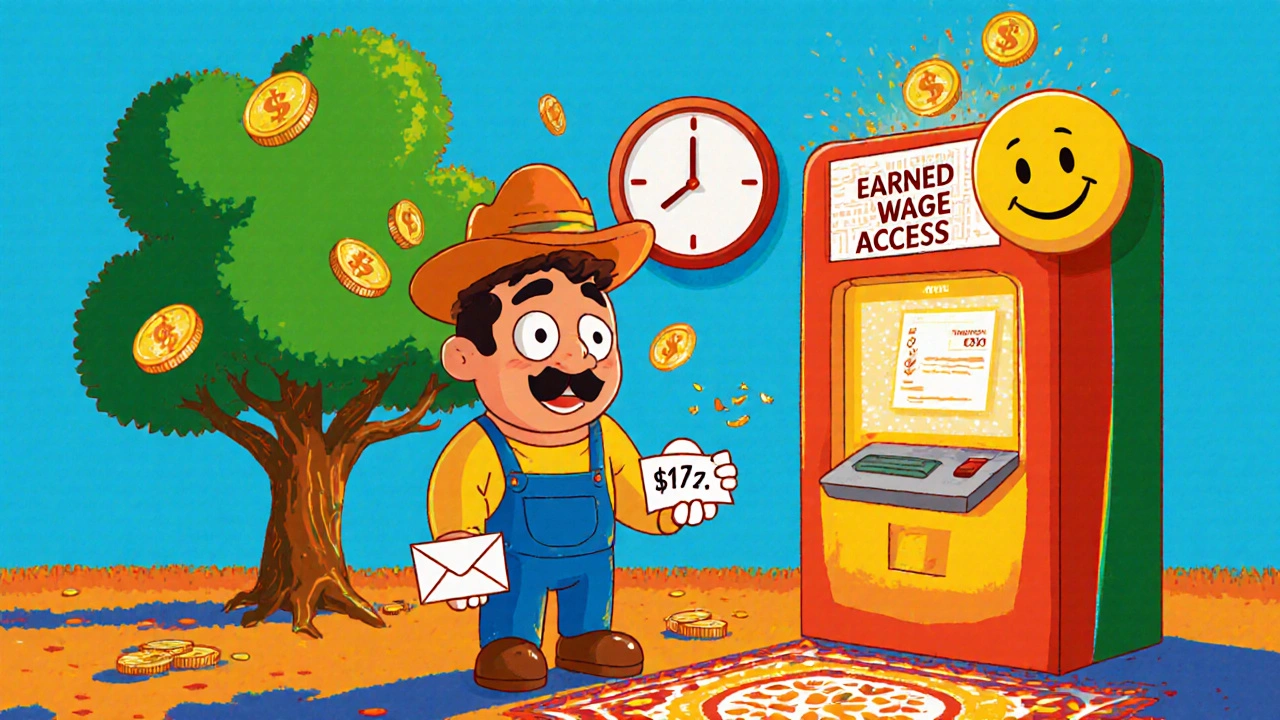Earned Wage Access: How Payday Advances Work and Who Benefits
When you hear earned wage access, a system that lets employees access part of their pay before the official payday. Also known as on-demand pay, it’s not a loan—it’s your own money, paid out early. This isn’t some fancy fintech gimmick. It’s a practical fix for people living paycheck to paycheck who can’t wait two weeks to cover an unexpected car repair or grocery bill.
Payroll innovation, the shift in how companies handle employee payments using digital tools is making earned wage access easier than ever. Employers partner with platforms that integrate with their time-tracking systems. When you clock 20 hours this week, you can pull out $150 of that earned pay—no credit check, no interest, no debt. It’s different from payday loans, which trap people in cycles of fees and rollovers. Earned wage access cuts that risk. Companies like Walmart, Target, and even small local businesses now offer it because they’ve seen fewer late arrivals, less stress, and better retention.
It’s not just about avoiding debt. Financial wellness, the state of being able to manage your money without constant stress improves when people aren’t scrambling. A worker who can pay their electric bill on Tuesday instead of waiting until Friday isn’t just saving money—they’re sleeping better. And when they’re not worrying about cash flow, they’re more focused at work, less likely to quit, and more likely to plan ahead. This isn’t charity. It’s smart business and better personal finance.
But earned wage access isn’t perfect. Some platforms charge small fees, and if you use it every week, you might end up with less take-home pay at the end of the month. Still, for people who’ve been locked out of traditional banking or hit by a sudden expense, it’s a lifeline. It’s also growing fast—not because banks pushed it, but because workers demanded it.
Below, you’ll find real stories and breakdowns of how this system works in practice. You’ll see how it connects to broader trends like digital banking, budgeting tools, and even how inflation makes early pay more critical than ever. No fluff. Just clear, useful info on how earned wage access is changing the way people live with money today.

Earned Wage Access vs. Payday Loans: Which One Actually Helps You Stay Out of Debt?
Earned wage access lets you get your own pay early with minimal fees - no interest, no debt. Payday loans trap you in cycles of high-cost borrowing. Learn the real difference and how to avoid predatory lending.

EWA and Credit Scores: Does Early Pay Impact Your Credit Score?
EWA doesn't directly affect your credit score, but it can help you avoid late payments that hurt it. Learn how on-demand pay protects your finances without building credit.